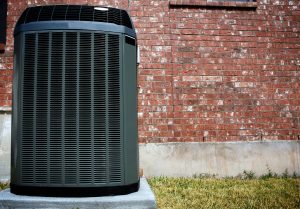 No one likes to think about having to replace an air conditioner in the middle of summer, but it happens, especially late in the summer when your system has had to turn for months on end. An older air conditioner might finally decide to give up the ghost, leaving your scrambling to install a replacement.
No one likes to think about having to replace an air conditioner in the middle of summer, but it happens, especially late in the summer when your system has had to turn for months on end. An older air conditioner might finally decide to give up the ghost, leaving your scrambling to install a replacement.
Luckily, a good technician can do the job quickly and efficiently, preventing your home from turning into an oven. But just because you need to move fast to get the new system put in doesn’t mean you should rush through the selection process. There are two key factors you need to determine before you can properly choose a new air conditioner: power levels and efficiency. Your technician can help you with both.
Power Levels
The air conditioner needs a power output level that matches the needs of the space it’s trying to cool. If it’s underpowered, it will run and run all day without ever making the home comfortable. If it’s overpowered, it will engage in a phenomenon known as short cycling: turning off and on rapidly throughout the day. Since air conditioners spend far more energy turning off and turning on than they do simply running, it can be incredibly wasteful: driving up monthly costs as well as subjecting the air conditioner to a great deal of wear and tear. That means an overpowered air conditioner will be far less cost effective, and will likely run into trouble long before they should.
The best air conditioner for your home is one that obeys the Goldilocks Rule: neither too large nor too small, but just right. A good air conditioning technician can get that for you by carefully examining your home. Measuring the square footage provides a base power level, but the final size of the system can also involve things like sunlight exposure and the amount of insulation in the walls.
Efficiency
Once power levels have been established, the next step is to determine the efficiency levels of your new air conditioner. This is measured by a SEER rating, which stands for Seasonal Energy Efficiency Ratio. It’s a simple measurement: the higher the rating, the more effectively the AC uses the energy, and the less it costs to do the same job.
It’s important to determine the efficiency levels after you’ve determined the power levels because the system still needs to do the job. An underpowered air conditioner with a higher efficiency rating won’t do you any good because it will need to run for longer periods of time: raising your bills and eliminating the advantages of higher efficiency. By sizing the air conditioner first, then determining the best efficiency level in your price range, you ensure that your new air conditioner will function to the best of its ability, and keep your home cool and comfortable for the minimum expended energy.
For quality air conditioning replacement services in the Oregon City, OR area, call on the friendly pros at The Clean Are Act today!
